Team
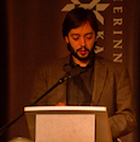
Prof. Francesco Mazzucchelli
Principal Investigator
Associate Professor at the Department of Philosophy and Communication and researcher at CUE, the International Center for Advanced Studies in the Humanities “Umberto Eco”. He has been awarded research fellowships at several Universities/Institutes, where he has spent research and teaching periods: NIAS, UvA University of Amsterdam, VU Amsterdam, University of Uppsala-Gotland, University of Manchester, Université de Limoges, Fondation Maison Sciences de l'Homme.
His research deals mainly with cultural semiotics and processes of construction/transmission of collective memory.
From September 2021, he is the Director of TraMe, Centre for the Semiotic Study of Memory.
He is one of the three Vice-Presidents of AISS, Italian Association of Semiotic Studies.

Prof. Massimo Leone
Substituted Principal Investigator
Professor of Philosophy of Communication, CulturalSemiotics, and Visual Semiotics at the Department of Philosophy and EducationalSciences, University of Turin, Italy, part-time Professor of Semiotics in theDepartment of Chinese Language and Literature, University of Shanghai, China,associate member of Cambridge Digital Humanities, University of Cambridge,Director of the Institute for Religious Studies at the “Bruno KesslerFoundation”, Trento, and Adjunct Professor at the University of Caracas,Venezuela He has been visiting professor at several universities in the fivecontinents. He has single-authored fifteen books, edited more than sixtycollective volumes, and published more than six hundred articles in semiotics,religious studies, and visual studies. He is the winner of a 2018 ERCConsolidator Grant and of a 2022 ERC Proof of Concept Grant. He is editor-in-chiefof Lexia, the Semiotic Journal of the Center for InterdisciplinaryResearch on Communication, University of Turin, Italy, co-editor-in-chief of Semiotica(De Gruyter), and co-editor of the book series “I Saggi di Lexia” (Rome:Aracne), “Semiotics of Religion” (Berlin and Boston: Walter de Gruyter), and “Advancesin Face Studies” (London and New York: Routledge).

Prof. Claudio Paolucci
Full Professor of Semiotics and Philosophy of Language at the University of Bologna coordinator of the PhD programme in Philosophy, Science, Cognition and Semiotics of the Department of Philosophy and Communication. From 2016 he is the scientific coordinator of the School of Advanced Studies in the Humanities founded by Umberto Eco. He is an expert in cognitive and interpretive semiotics, giving rise to a reinterpretation of contemporary semiotic theory. He organised and developed the seminar series entitled “Anthropocene” at the CUE (Centro Umberto Eco), providing a series of lectures on the climate and ecological crisis and the resolutions of the humanities perspectives. In one of his latest books Cognitive Semiotics (Springer 2021), Paolucci proposes an innovative cognitive semiotics that emerges as a fundamental component of a theory of human cognition that integrates the “semiotic system” as co-constitutive of cognitive processes in action. His work takes its cue from classical linguists and semioticians interpreted within the broader theoretical framework of cognition in action that links radical enactivism on the one hand and classical pragmatism on the other.
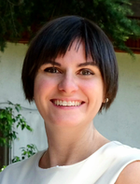
Prof. Jenny Ponzo
Associate Professor of Semiotics at the University of Turin (Italy)
PI of the ERC project NeMoSanctI (www.nemosancti.wordpress.com)
Research interests: religion & literature, Catholicism, aesthetic and narrative theories, interdisciplinary methods for the study of identity, subjectivity, values and interpretative styles, Italian and comparative literature, cultural and religious studies.
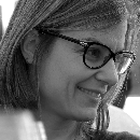
Prof. Elena Maria Formia
Professor in Design at the Department of Architecture of Università di Bologna, where she is Director of First Cycle Degree in Industrial Design and the Second Cycle Degree in Advanced Design. She is member of the Advanced Design Research Unit (ADU). Her main research topics are advanced design and future-focused processes, design education and the relationship between design sciences and humanistic knowledge. Since 2021, she is Deputy Editor-in-Chief of the international scientific journal "diid. Disegno Industriale Industrial Design". She wrote articles both in international conferences and journals, such as “Strategic Design Research Journal”, “Design and Culture”, “Journal of Design History”, “MD Journal”, “diid”, “The Design Journal”.
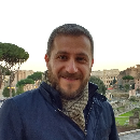
Prof. Matteo Martelli
Matteo Martelli is a historian of science and his main research deals with the study of alchemical texts. On this topic, he won an ERC (2017-2022) as Principal Investigator of the project “AlchemEast” (Consolidator Grant). Martelli has a specific interest in materiality and matter (on how it has been conceptualized over time in ancient philosophy, alchemy, etc.). He is also interested in scientific museums and strategies of valorisation/communication of scientific cultural heritage, and will share his expertise on this topic for the activities of communication (e.g. exhibition organization).
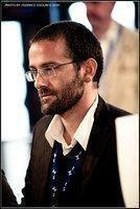
Prof. Antonio Dante Maria Santangelo
Professor in Communication Science and Media, he interprets Semiotics as a social science aimed at recognizing and describing the cultural patterns that make meaningful texts, the human practices around us, and our life experiences, especially interpersonal ones.
Specialized in sociosemiotic studies of television, film and the web, but I have also worked on video art, advertising and political communication.
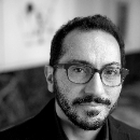
Prof. Claudio Coletta
Associate Professor in Sociology of Culture and Communication. From 2020 to 2023, he worked as a senior assistant professor (RTDb) and MSCA-IF global fellow at the University of Bologna in the Department of Philosophy and Communication Studies. His research is in the field of Sociology and Science and Technology Studies (STS), with a particular focus on the relationship between digital infrastructures, organizational processes, climate change, and urban transformations, using ethnographic/qualitative approaches. In 2022, he obtained the National Scientific Qualification (SSD SPS/08, "Seconda Fascia")
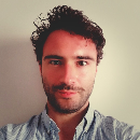
Dr. Gabriele Giampieri
Research Fellow
He investigates the intersubjective dimension of the development of the self in early childhood and the organism-environment relationship by connecting outcomes from developmental psychology field, enactivist theories, cognitive semiotics and anthropology.
By adopting an inter-cultural approach the thesis focuses on how different modalities of attunement between caregiver and infant detected by the linguistic socialization’s research in different cultural systems may in turn determine different modes of development of the individual’s concept which - far from corresponding inevitably to the perimeter of the biological organism and transitive agency - may manifest more complex and ergative patterns with the external environment, our enunciative potentials, our interpretative logics and on modes of existences in Semiotics theory.

Dr. Francesco Piluso
Research Fellow
Francesco Piluso earned his Ph.D. in Philosophy, Science Cognition, Semiotics from the University of Bologna in 2021. Before joining the Cult-Up project in 2024, he was a postdoctoral researcher in the ERC FACETS project – Face Aesthetics in Contemporary E-Technological Societies – at the University of Turin, in 2023. His research aims to explore the field of media and communication, highlighting its techno-aesthetic evolutions and socio-cultural implications from a semiotic perspective. Specifically, he focuses on the notion of "fetishism" to analyze practices of circulation, revaluation, collection, and cult of material and media objects within social communities. For CRAAAZI - Centro di Ricerca e Archivio Autonomo Transfemminista Alessandro Zijno, and B-side Pride, he works on the preservation and promotion of materials, knowledge, practices, and repertoires of the LGBTQ+ movement in Bologna.

Dr. Camilla Robuschi
Research Fellow
I earn a PhD in Philosophy at the Department of Humanities of the University of Trento with a research that has two objectives: on the one hand, to reformulate a concept of aesthetics that includes selected theories and tools from semiotics, anthropology and code biology, and on the other hand, to identify the processes, i.e. the acts of perception, that lead to the creation of models that can be defined as aesthetic. The aim of my research was to show that aesthetics is a specific modelling system that is useful at the interface with the environment. The results of the research found their expression and enrichment in the publication of articles in international - such as John Wiley & Sons and Byosystems - and national journals - such as "Class A" rated journal of the Italian Anvur estetica.studi e ricerche and Rivista di Filosofia del Linguaggio - and participation of articles in conferences and seminars in the fields of interest. My research was also applied during a two-year collaboration in a design laboratory at the University of Trento, the Design Research Lab (DRLab), where I was able to organise some lectures and contribute to the dissemination of the workshop through the main social media channels. I currently teach Sociology of Design at the IAAD Design Academy in Turin (Istituto d'Arte Applicata e Design) and I am a member of the Governing Board of the International Society of Code Biology (ISCB).
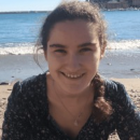
Dr. Silvia Zanelli Quarantini Brini
Research Fellow
Silvia Zanelli is Research Fellow in Philosophy at the University of Bologna. She attended the PhD programme in Transcultural Studies in Humanities at the University of Bergamo (2020-2023), where she is also teaching assistant in semiotics. Her research topics concern the philosophy of Gilles Deleuze and Charles Sanders Peirce, with a focus on the relation between individuation and pre-individuality, at the crossroads of semiotics and ontology. On the subject she has published several essays and reviews. She has also published a monograph entitled Con-fini. Deleuze, Simondon e il problema dell’individuazione.
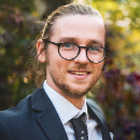
Dr. Nicola Zengiaro
PhD Candidate
PhD student in semiotics at the University of Bologna, where he mainly works on biosemiotics and ecosemiotics. Previously, he graduated under the supervision of Maurizio Ferraris at the University of Turin, specialized in the second level Master in Moral Philosophy at the University of Santiago de Compostela, and worked on biosemiotics during the second Master in Philosophical Sciences at the University of Verona. He is part of the editorial staff of the journal "Animal Studies. Rivista italiana di zooantropologia" and has published several articles in national and international journals on animality and biosemiotics

Dr. Eleonora Chiais
Associated Researcher
Eleonora Chiais is researcher at the Università di Torino, where she teaches "Moda e Costume" (BA) and "Forme e Linguaggi della Moda" (MA), as well as contract professor of "Sociology of Fashion" at Alma Mater Studiorum - University of Bologna (Rimini Campus) in the academic year 2021/2022.
Among her recent publications: M¥SS KETA come persona collettiva: fenomenologia di una maschera in occhiali, veletta e CAPSLOCK (Accademia University Press, 2021), “Quest’anno è di moda il cristianesimo”. Fenomeni di riscrittura tra moda e religione cattolica (Silvana Editoriale, 2021).
PhD in Turin, she combines teaching and academic research with a journalistic activity.

Dr. Luigi Lobaccaro
Associated Researcher
Luigi Lobaccaro is a post-doc researcher at the Department of Philosophy and Communication at the University of Bologna. His main research interests are in the areas of Interpretive and Cognitive Semiotics, 4E Cognitive Sciences, and Psychopathology. Specifically, his work focuses on the sense-making processes in schizophrenia, including the study of schizophrenic language, the relationship between schizophrenic narratives and embodied experience, and the cognitive semiotics of delusions.
He has previously been a visiting researcher at the Center for Subjectivity Research at the University of Copenhagen. He is currently involved in the European Erasmus+ NeMo project (https://site.unibo.it/nemoproject/en ). Also, he collaborates with the International Center for Humanities “Umberto Eco”, the Center for Knowledge and Cognition, and the Centre for Enactivism and Cognitive Semiotics
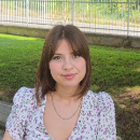
Dr. Martina Grinello
Associated PhD Candidate
PhD student in Philosophy, Science, Cognition and Semiotics since 2023, she deals with the link between semiotics and decolonisation especially from the perspective of memory and culture.
She investigates the semiotic mechanisms of decolonisation practices with a particular interest in new forms of heritage management, including digitisation and processes that increase accessibility.
He is currently analysing the exhibition spaces of major European museums that are undergoing a process of resematisation of their colonial collections. The objects of her research are the Museum of Civilisations (Rome), Quai Branly and de l'Homme (Paris), Tropenmuseum (Amsterdam), Royal Museum for Central Africa (Brussels) and Humboldt Forum (Berlin).